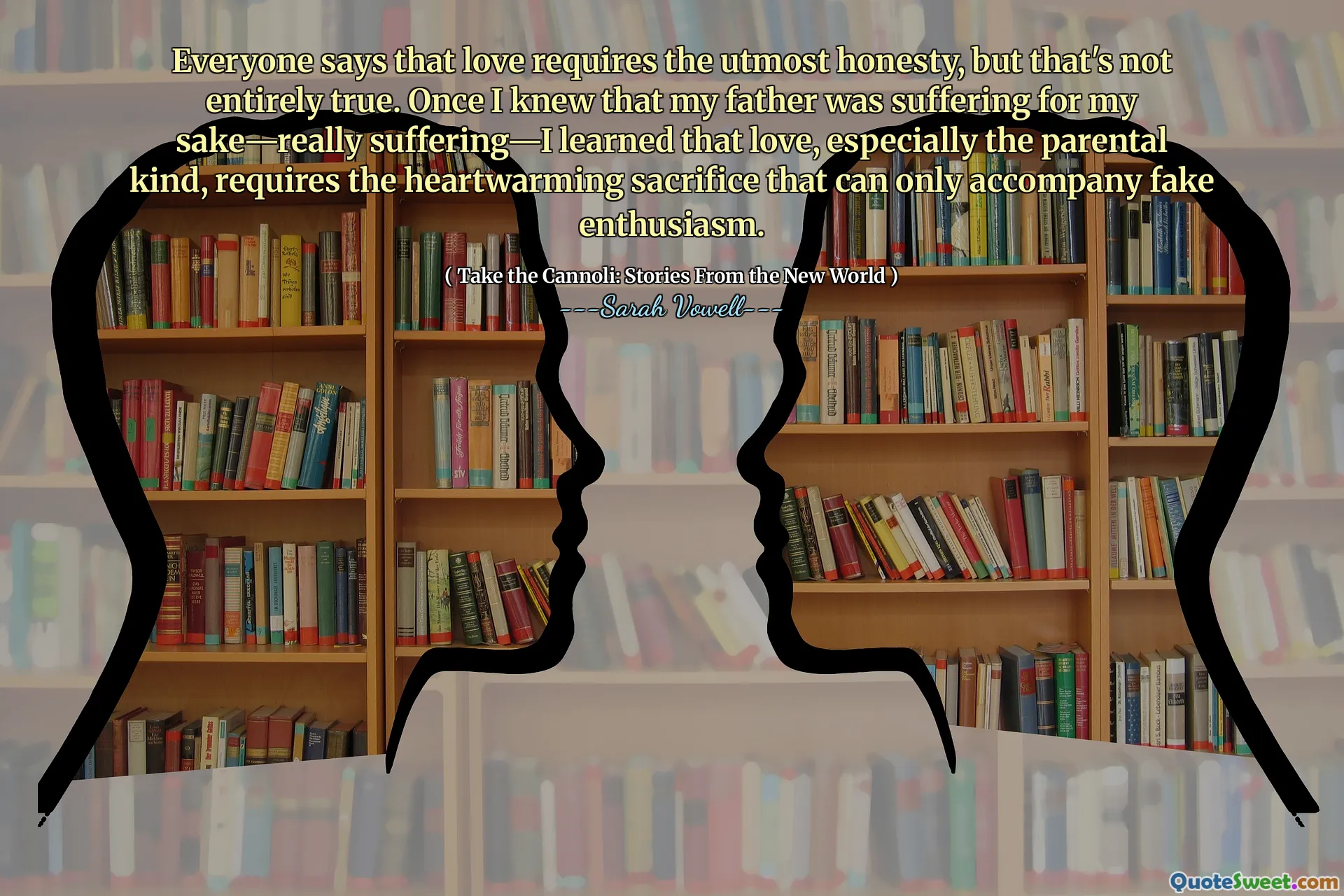
Everyone says that love requires the utmost honesty, but that's not entirely true. Once I knew that my father was suffering for my sake—really suffering—I learned that love, especially the parental kind, requires the heartwarming sacrifice that can only accompany fake enthusiasm.
This quote prompts a profound examination of the nature of love and sacrifice, especially within the context of parental relationships. It challenges the common ideal that genuine love is solely rooted in honesty and openness. Instead, it suggests that true parental love often entails a degree of emotional 'fakery'—displaying enthusiasm or warmth, even when feeling burdened or strained internally. Such acts of putting on a brave face, smiling through pain, or feigning happiness are not signs of superficiality but are symbolic of the deeper sacrifices parents make for their children's well-being. The realization that a father endures suffering for his child's sake highlights the paradox of love: it is both selfless and sometimes deceptive. Genuine concern and love may be masked behind a facade of strength, suggesting that real love includes accepting uncomfortable truths and acting in the best interests of another even at personal emotional costs. The acknowledgment that love encompasses imitation of enthusiasm for the sake of the loved one adds richness to our understanding of human relationships. It shows that love is complex—often messy, layered with sacrifice, and not always aligned with surface appearances of honesty. Recognizing these nuances fosters a more compassionate perspective on those who suffer quietly or hide their pain, revealing that acts of love are sometimes cloaked in what appears to be false cheer, but are deeply rooted in genuine care and sacrifice.






